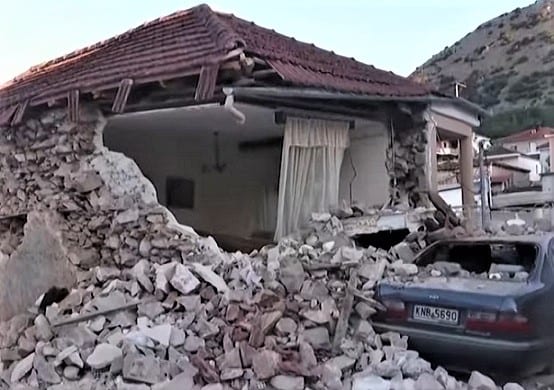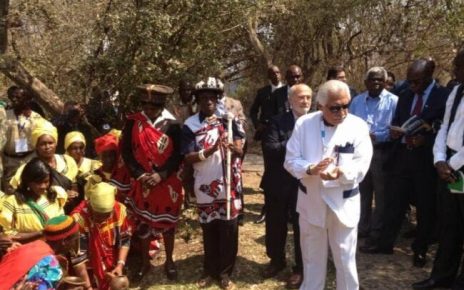The Greece army set up tents and meal counters at a nearby soccer field as local officials urged people to remain outside their homes until they could be inspected after a 6.2 earthquake with powerful aftershocks of up to 5.2 magnitude.
- Thousands feared returning to their homes in central Greece and spent the night outdoors late Wednesday.
- The earthquake had an estimated depth of just 8 kilometers (5 miles) and was one of the reasons why it was felt so strongly in the region.
- The quake originated in a fault line in the area that has historically not produced temblors of much larger magnitude.
A strong 6.2 magnitude earthquake struck the region of Larissa in central Greece on Wednesday, damaging houses and vehicles and sending people fleeing from their homes.
The quake struck at 12:16 p.m. (1015 GMT), according to the Athens Geodynamic Institute, and was also felt in neighboring Albania and North Macedonia, and as far north as Kosovo and Montenegro.
Thousands feared returning to their homes in central Greece and spent the night outdoors late Wednesday after the powerful earthquake, The shallow magnitude-6.2 quake struck near the central city of Larissa and was felt across the region, damaging homes and public buildings. One man was hurt by falling debris but no serious injuries were reported.
Officials reported structural damage to a primary school in addition to houses, which was stone-built in 1938, in the quake-hit village of Damasi where 63 students were attending classes.

1 of 24Red Cross distribute food to local residents after an earthquake in Damasi village, central Greece, Wednesday, March 3, 2021. An earthquake with a preliminary magnitude of at least 6.0 struck central Greece Wednesday and was also felt in neighboring Albania and North Macedonia, and as far as Kosovo and Montenegro. (AP Photo/Vaggelis Kousioras)
ATHENS, Greece (AP) — Fearful of returning to their homes, thousands of people in central Greece were spending the night outdoors late Wednesday after a powerful earthquake, felt across the region, damaged homes and public buildings.
The shallow, magnitude-6.0 quake struck near the central city of Larissa. One man was hurt by falling debris but no serious injuries were reported.
Officials reported structural damage, mainly to old houses and buildings that saw walls collapse or crack. One of them was a primary school, stone-built in 1938, in the quake-hit village of Damasi where 63 students were attending classes. Everyone got out okay, but the building will be condemned.
The army set up tents and meal counters at a nearby soccer field as local officials urged people to remain outside their homes until they could be inspected. A series of powerful aftershocks of up to 5.2 magnitude kept many residents on edge.
Turkish Foreign Minister Mevlut Cavusoglu phoned his Greek counterpart, Nikos Dendias, to convey solidarity and offer assistance if needed, according to officials from the two neighboring countries — which are longtime regional rivals.
The foreign minister of Albania, Olta Xhacka, also called Dendias to express support.
In Athens, seismologist Vassilis Karastathis told reporters that the quake originated in a fault line in the area that has historically not produced temblors of much larger magnitude than Wednesday’s. He said the post-quake activity appeared normal so far but experts were monitoring the situation.
“The earthquake had an estimated depth of just 8 kilometers (5 miles) and that was one of the reasons why it was felt so strongly in the region,” said Karastathis, who is the deputy director of the Athens Geodynamic Institute.




